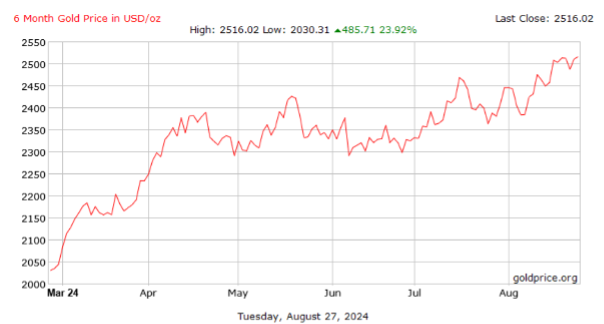It’s Also the Cheapest and Quickest…
You’re probably familiar with the idea of a diversified portfolio. Owning lots of different companies in different sectors so that if some areas of the market get hit—others will keep their value or even go up. That will preserve your wealth.
That’s the essence of diversification… but diversification can go way beyond the stock market.
Many people don’t consider two other aspects of diversification, which I like to focus on:
1. Owning other assets (such as hard assets) so you’re not just relying on financial markets, and
2. Being geographically diversified… In other words, not keeping all your assets in one country.
Let’s say you’re a collector and have valuable things in a high-quality safe at home. You’ve got rare baseball cards, stamps, coins, and so on. They’re worth a lot, so they’re assets.
You may think you’re diversified—you’ve kept a portion of your wealth outside of stocks.
But those things are all in one place.
If something should happen to that safe, everything is gone. Your assets aren’t diversified geographically.
The same applies to any type of wealth. Think about owning real estate in multiple countries. If one market goes down, others will maintain their value or even go up.
Real estate is a big-ticket item. But if your goal is to put some of your wealth abroad in the quickest, easiest, and cheapest way, nothing beats offshore gold storage.
Gold has been the ultimate store of wealth throughout recorded history. It’s the ideal hedge against inflation, since its price tends to go up as the dollar falls. It’s “inversely correlated” to most financial assets, meaning it rises when others fall. It shoots up fast when there’s a lot of uncertainty in the world.
Case in point: The price of gold has risen nearly 25% in the last six months…

So why shouldn’t you just buy some gold and keep it at home, or in a local bank vault?
There are a couple of good reasons. First, there is historical precedent for the US government to confiscate private gold holdings. It happened in the 1930s, in the Great Depression. Second, in a crisis, it might be impossible to take your gold out of the country, or even to convert it into cash.
For those reasons, many people choose to keep gold in private foreign vaults. Countries like Switzerland, Singapore, Austria, New Zealand, and the Cayman Islands boast sophisticated high-security vaults. They’re insured by the world’s top companies.
Best of all, they double as precious metals brokers, so you can buy gold from them and store it in their vaults without having to go overseas yourself.
And there’s another little-known advantage to storing gold in a foreign vault…
Under the Foreign Account Tax Compliance Act (FATCA), US taxpayers must report the value of all their financial holdings and accounts outside the US. If you store gold in a bank vault or safety deposit box, that’s considered a financial account, and you must tell Uncle Sam. But if you keep it in a private vault and own gold bars or coins in your own name, you don’t have to tell anyone about it.
In private consultations at my Global Citizen service, I often meet people who’ve already bought gold as a hedge against an uncertain future. They ask me whether they can take it with them when they move abroad. My advice: Why wait? Put it abroad now and follow it yourself when you’re ready!
Not signed up to Jeff’s Field Notes?
Sign up for FREE by entering your email in the box below and you’ll get his latest insights and analysis delivered direct to your inbox every day (you can unsubscribe at any time). Plus, when you sign up now, you’ll receive a FREE report and bonus video on how to get a second passport. Simply enter your email below to get started.
